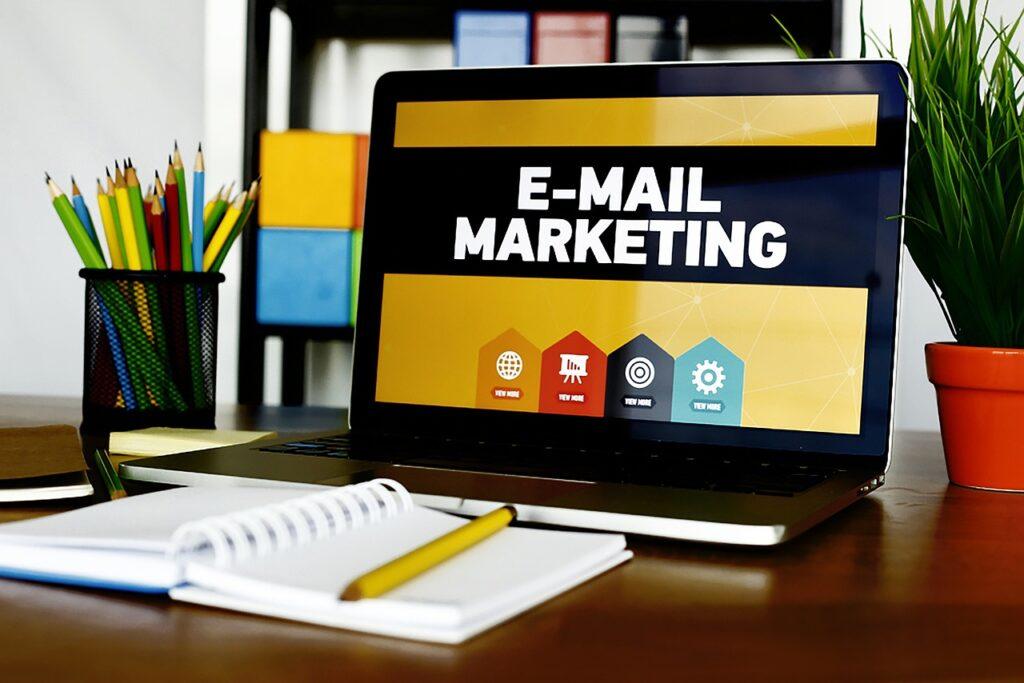This article discusses the significance of email marketing, how to create effective email campaigns, and the best practices to follow in order to maximize its impact.
Businesses can differentiate themselves in the marketplace, build credibility, and establish a strong connection with their target audience by understanding the elements and significance of brand identity and implementing strategies to create a cohesive and memorable brand image. A robust brand identity forms the foundation for company growth, fostering customer loyalty and advocacy, ultimately resulting in increased revenue and market share. This article will delve into the importance of email marketing, provide strategies for creating impactful email campaigns, and outline key best practices to maximize its effectiveness.
I. The Importance of Email Marketing
Email marketing plays a crucial role in a comprehensive digital marketing strategy. Here are several reasons why it is essential for building stronger customer relationships:
1. Direct and Personalized Communication:
Email offers a direct channel for reaching clients’ inboxes. By segmenting email lists and personalizing content, businesses can customize their communications to individual recipients, providing a more engaging and personalized experience.
2. Building Trust and Credibility:
Businesses can build trust and credibility with their audience through regular and valuable email communication. By providing relevant and useful content, businesses can position themselves as reliable advisors in their industry.
3. Customer Engagement and Retention:
Businesses can engage with their customers on a regular basis through email marketing. By consistently delivering updates, specials, and informative content, businesses can stay top-of-mind, encourage repeat business, and foster customer loyalty.
II. Crafting Effective Email Campaigns
To build stronger customer relationships through email marketing, businesses need to create and execute effective email campaigns. Here are some key strategies to consider:
1. Define Your Goals:
Before embarking on an email campaign, it is important to define your goals in detail. Knowing your objectives will allow you to tailor the content of your emails and evaluate the effectiveness of your efforts. Whether your goals include boosting sales, increasing website traffic, or improving client retention, having a clear understanding of what you want to achieve will guide your email marketing strategy.
2. Build a Quality Email List:
Successful email marketing is built on a solid email list. Concentrate on developing a list of active readers who have expressly agreed to receive emails from your company. To promote sign-ups, provide worthwhile incentives such as exclusive access to material or savings.
3. Segmentation and Personalisation:
Create different segments for your email list depending on engagement levels, transaction histories, or demographics. This enables you to send customised and pertinent material to particular subscription groups. Add recipient names and customised content to your emails to make them feel more engaging and personalised.
4. Compelling Subject Lines and Content:
Grab your subscribers to open your emails by using intriguing subject lines that grab their attention. Once they’ve opened, provide them with worthwhile material that satisfies their requirements, solves their issues, or grants them special advantages. To keep your subscribers interested, blend educational information, marketing offers, and gripping narrative.
5. Clear Call-to-Actions:
Every email should include a clear call-to-action (CTA) that guides readers towards the desired action. Whether it’s making a purchase, registering for an event, or downloading a resource, the CTA should be prominently displayed and easy to click on. Use visually distinct buttons or links that stand out and compel recipients to click and take the desired action.
6. Automation and Drip Campaigns:
Set up drip campaigns using automation tools to send a series of targeted emails over time. This allows you to automate the process of nurturing leads, onboarding new clients, or re-engaging inactive subscribers. By setting triggers based on specific events or time periods, you can ensure that the right message is delivered at the right moment.
III. Best Practices for Email Marketing
To ensure the success of your email marketing efforts and build stronger customer relationships, follow these best practices:
1. Focus on Deliverability:
To ensure that your messages reach the inboxes of your subscribers, it is crucial to pay attention to email deliverability. Keep your email list clean by regularly removing inactive or bounced email addresses. Additionally, maintain a good sender reputation by following best practices for email marketing and avoiding spammy practices.
2. Mobile Optimisation:
Your email templates must be optimised for mobile viewing because the majority of emails are opened on mobile devices. To ensure a seamless user experience, employ responsive designs that adjust to multiple screen sizes and test your emails on numerous devices.
3. Monitor and Analyse Performance:
Keep an eye on the effectiveness of your email efforts. To assess the effectiveness of your campaigns and pinpoint areas for improvement, track metrics like open rates, click-through rates, and conversion rates. To learn more about the tastes and behaviour of your subscribers, use email marketing analytics solutions.
4. Compliance with Data Protection Regulations:
Make sure your email marketing procedures abide by data protection laws, such as the CAN-SPAM Act and the General Data Protection Regulation (GDPR). Obtain valid subscriber consent, offer a simple opt-out method, and manage consumer data responsibly.
IV. Building Lasting Customer Relationships
Beyond individual email campaigns, email marketing can be a valuable tool for building lasting customer relationships when used strategically. Here are a few additional tips:
1. Nurture Leads with Email Sequences:
To nurture leads at various points of the customer journey, use email sequences. Offer insightful content, deal with typical aches and pains, and move prospects towards a purchasing decision. Develop trust and credibility over time by showcasing your knowledge of their needs and your ability to meet them.
2. Personalised Recommendations and Upsells:
Utilise consumer information and past purchases to offer unique product recommendations or deals. This raises the likelihood of upsells or recurring business by demonstrating that you are aware of their preferences.
3. Solicit Feedback and Encourage Engagement:
Regularly seek feedback from your customers through surveys or polls. Encourage them to share their opinions, experiences, and suggestions. Respond to their feedback promptly and show that you value their input.
4. Exclusive Customer Benefits:
Reward your loyal consumers with exclusive privileges or early access to new goods or special offers. This fosters a sense of loyalty and motivates customers to continue interacting with your brand by making them feel valued and appreciated.
In conclusion, email marketing is a powerful tool for businesses to develop stronger customer relationships. By creating effective email campaigns, personalizing content, and following best practices, businesses can engage with their audience, foster trust and loyalty, and drive success. With a well-crafted email marketing strategy, businesses can nurture leads, interact with customers, and establish lasting connections that are mutually beneficial. So, leverage the potential of email marketing to cultivate meaningful relationships and propel your business forward.


